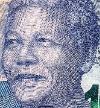Fee-free universities not feasible - UCT, Maties
6 September 2016
Cape Town - Two of the big guns of higher education in the Western Cape say "fee-free" universities are not feasible in the current climate.
But there should be different financial mechanisms to ensure the poorest students received education without being burdened with debt, the University of Cape Town (UCT) and Stellenbosch University (SU) told the Commission of Inquiry into Higher Education and Training (fees commission) on Tuesday.
"We, as a university, do not feel that fee-free education currently is feasible for our institutions and we rather want to push for subsidised higher education for the poor," said SU Rector and Vice Chancellor Wim de Villiers.
The main sources of funding should be government grants and student fees, he said. Bursaries could be used as a "strategic tool".
The university supported the provision of bursaries/loans to academically deserving and needy students on a sliding scale, linked to combined annual household income.
For those with less than R122 000 household income, it proposed that the National Student Financial Aid Scheme (NSFAS) provide full bursaries for tuition and accommodation.
'Free education only possible in ideal world'
Stellenbosch University revealed that R658.7m had been paid out in bursaries last year.
Of this, R402.8m was taken from its own funds and research contracts. NSFAS and other agents contributed R255.9m.
Should there be a zero percent fee increase next year, the university would have a R49.8m shortfall.
UCT Vice Chancellor Max Price said that fee-free education was currently only possible in an "ideal world".
He said block grants per student had decreased, but many more resources were required to ensure they could cope.
"In many senses, the cost per student has gone up because we are taking up a significant role that the schools should have taken."
He proposed a co-funding model, plus a government subsidy of 1% of the GDP.
He said households which earned below R120 000 should work on a grant basis, rather than a loan.
"We would argue that there should be grants for the poorest, and the size of the loan share increases dependent on wealth."
Activists confront UCT vice chancellor
Price was asked why fees at UCT were higher than at other institutions.
He said they made no profit and that money was put back into the university for the public good.
The poor and "missing middle" were cross-subsided from full fee-paying students, said Price.
"We believe we do not turn away any student for financial reasons. It doesn’t mean there are no financial exclusions. We have strict criteria about academic performance."
A group of black solidarity activists, some UCT students, interrupted the fees commission on Tuesday to confront Price.
They would not let him leave without giving answers on why five students had been interdicted and "targeted" during recent protests.
He was eventually escorted out by police. The commissioners and evidence leaders also left.
The group then held their own commission, arguing that it was not just about free education, but the struggle for black liberation.
This article first appeared on News24, see here.
![]()

